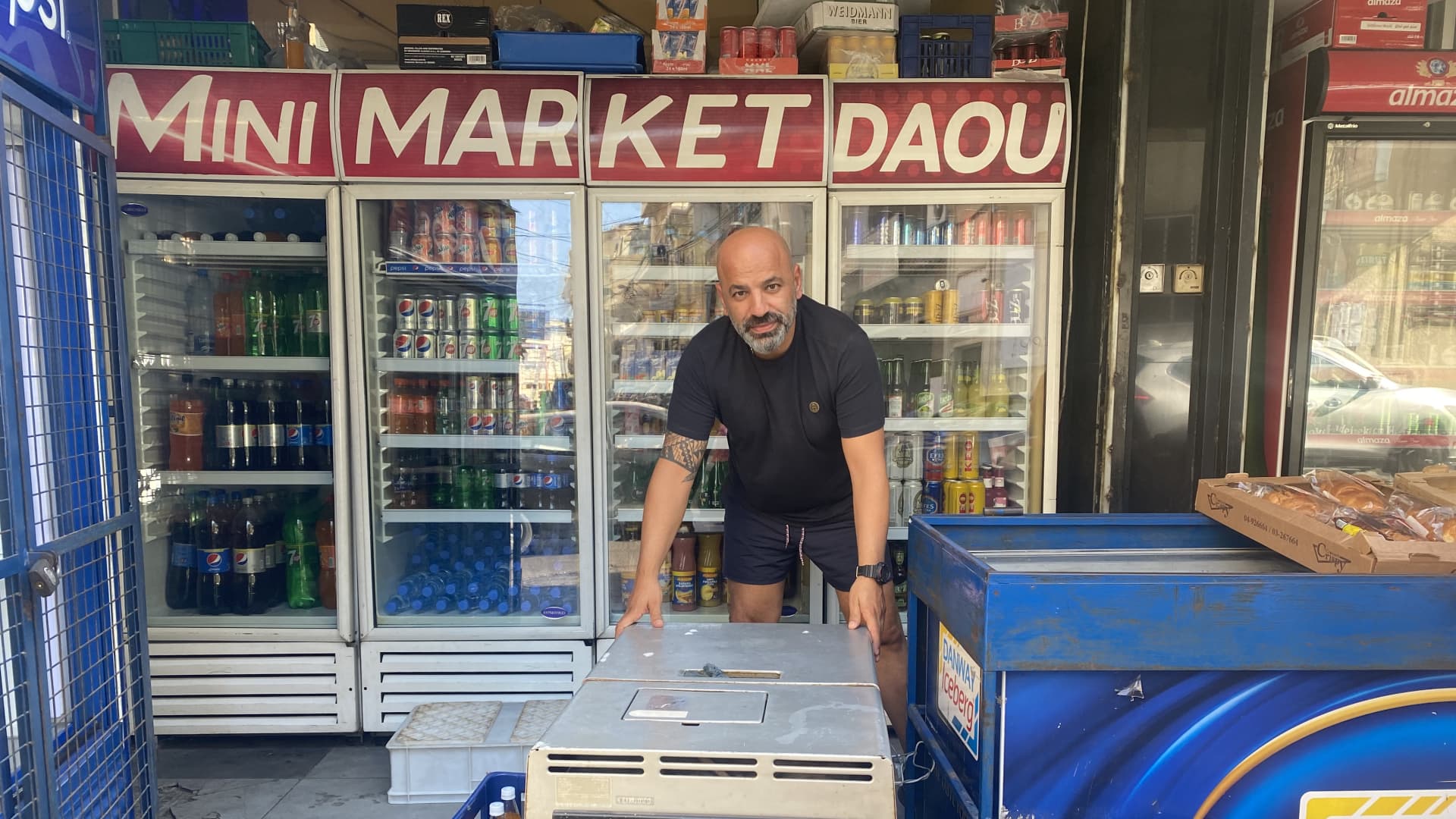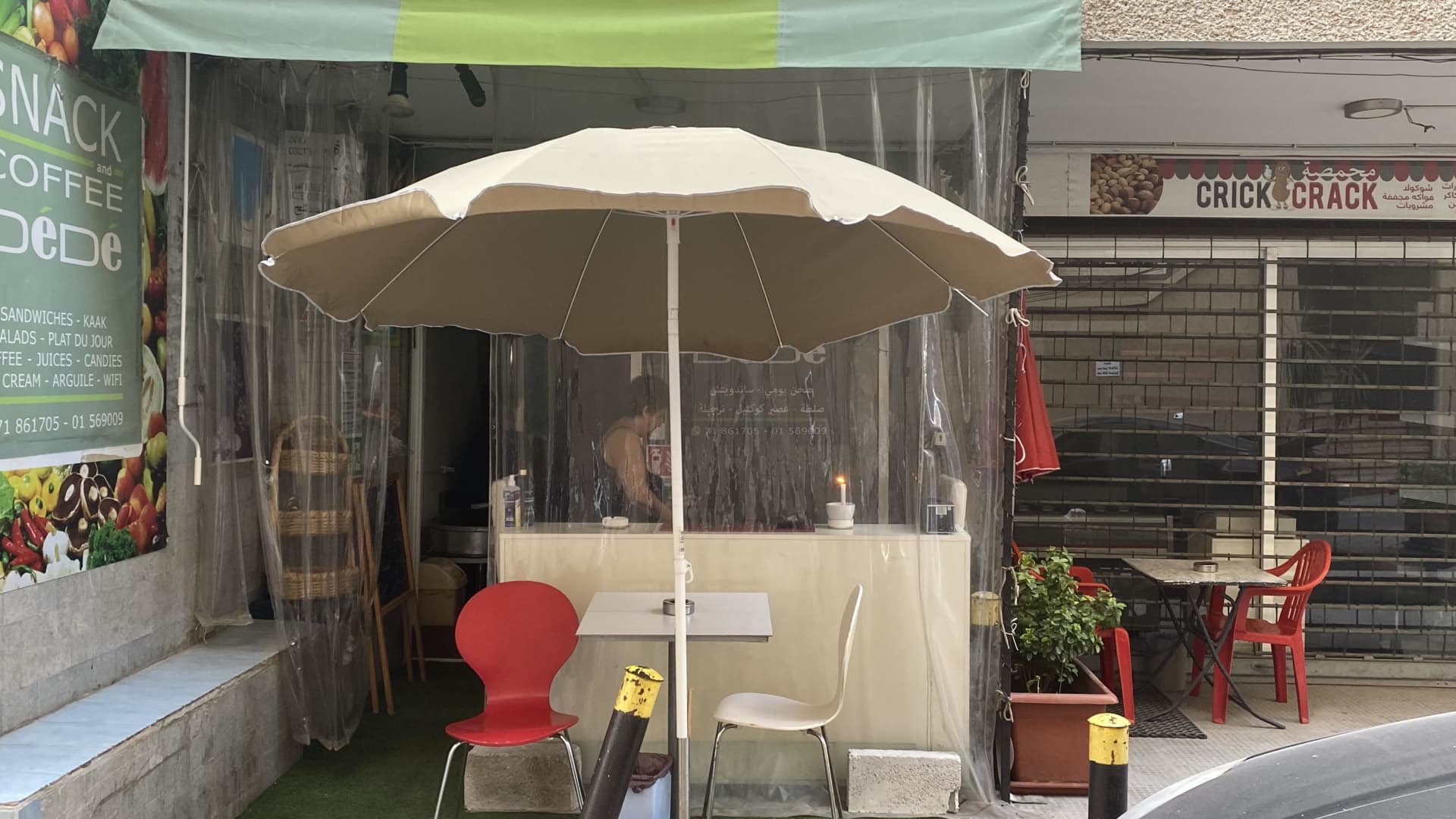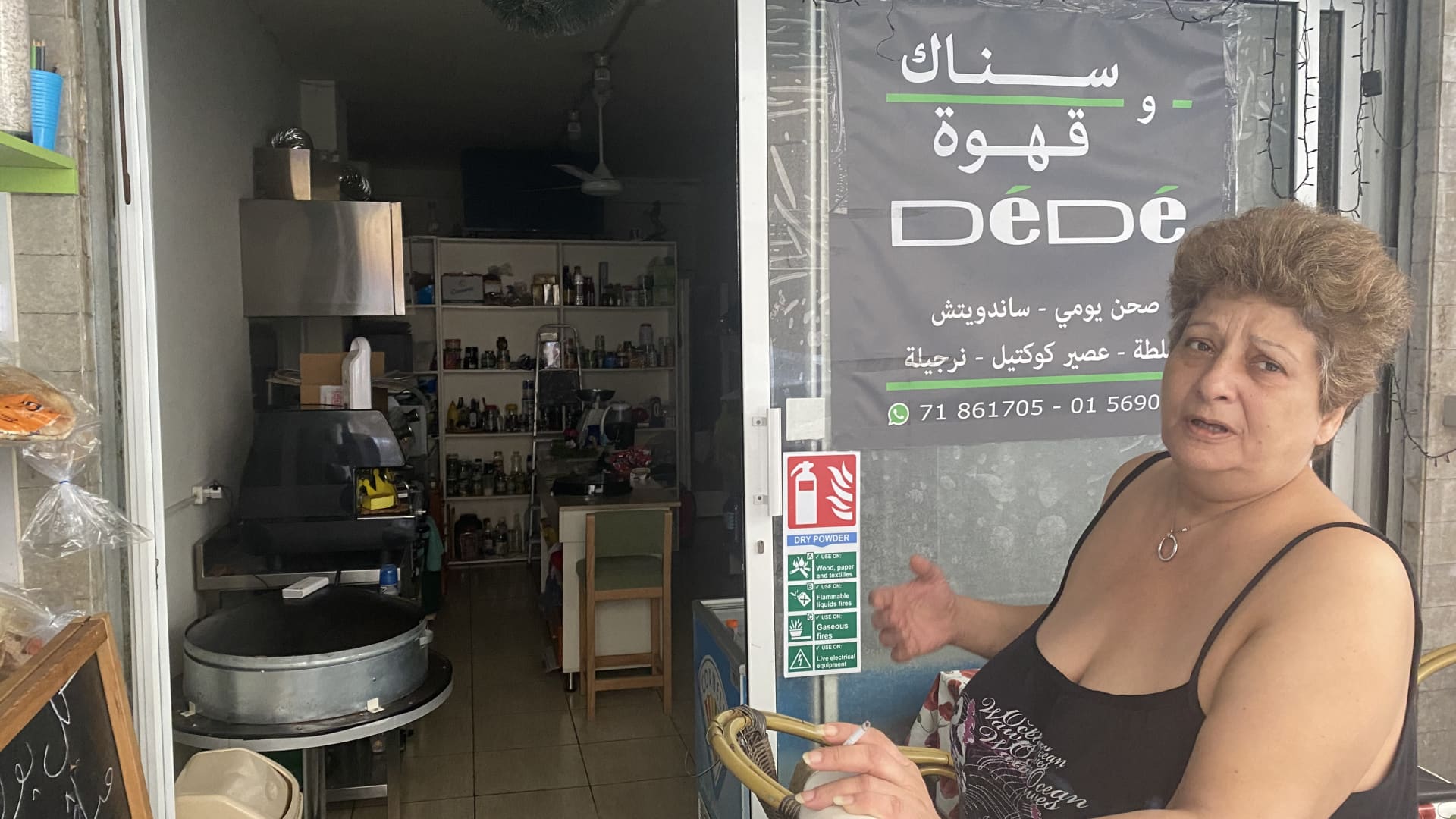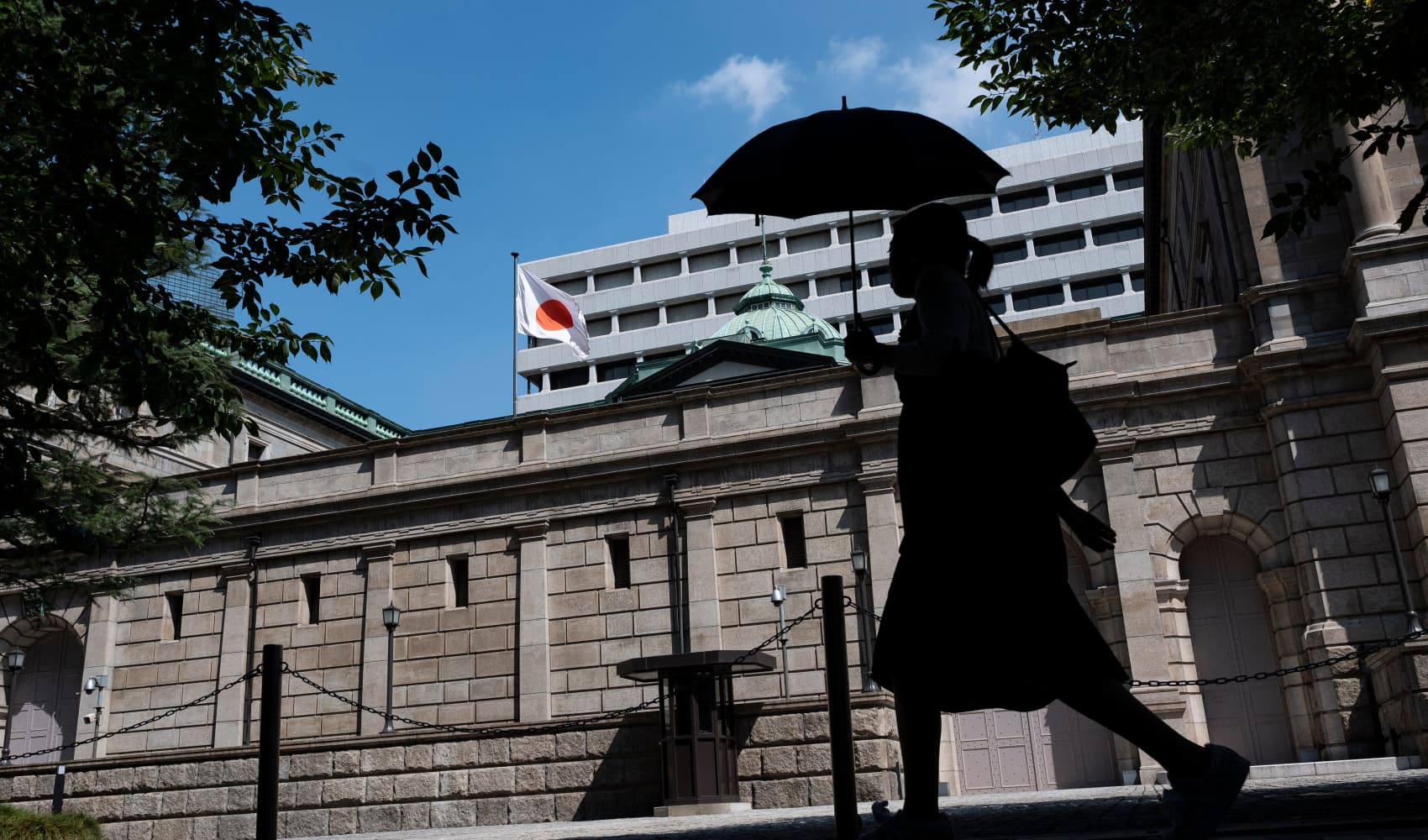
- Lebanon suffered a total power outage over the weekend, leaving its population of 6 million without centrally generated electricity for 24 hours.
- The crisis is creating a nightmare for the country's residents, but has been a long time in the making.
- "We cannot buy a lot of things. We cannot buy cheese and ham, we have to buy them by small pieces, because we don't always have electricity, and the people are always afraid," one shop owner told CNBC.
Lebanon suffered a total power outage over the weekend, leaving its population of 6 million without centrally generated electricity for 24 hours.
The state electricity company said in a statement that the shutdown of the country's two main power stations, due to fuel shortages, had "directly affected the stability of the power network and led to its complete outage, with no possibility of resuming operations in the meantime."
Power returned late Sunday after the central bank granted the energy ministry $100 million in credit to buy fuel and keep its plants operating. Officials had warned the outage was likely to last several days.
Get Philly local news, weather forecasts, sports and entertainment stories to your inbox. Sign up for NBC Philadelphia newsletters.
The crisis is creating a nightmare for the country's residents, but has been a long time in the making.
Gas shortages might sound familiar — the U.K. and the rest of Europe are in the throes of a mounting fuel crisis, which has induced panic-buying and erratic behavior among many who had never imagined facing such shortages.
Money Report
But for Lebanon, the same problem has been a reality for months — it's just another battle in the long list of crises that have left the country with multiple daily power outages, a banking and economic crisis, food shortages, overwhelmed hospitals, and a spiraling currency relying on volatile black market exchange rates.
Walking through the capital Beirut — a once-thriving city often called the "Paris of the Middle East" — at any time of day, one can see shopfronts closed or operating in darkness, with those lucky enough to have access to fuel relying on backup generators to keep the lights on. When the power is out, many shopkeepers will refuse to sell anything but water, as the volatile minute-by-minute changes in the value of the Lebanese lira mean the price of goods can shift from one period of power to the next.
And hundreds of businesses destroyed in the devastating Beirut Port explosion of August 2020 are permanently gone. With little help from the state, gutted bars and other businesses with their entrances blown open and innards full of debris remain fixtures on streets all over the city.

"It's catastrophic," Rabih Daou, a small grocery store owner in Beirut's Geitawy district, told CNBC in late September from his shop, darkened during one of the country's many daily power outages. He pointed to empty refrigerator shelves, where only one small fridge was running, holding a few dairy products.
"We cannot buy a lot of things. We cannot buy cheese and ham, we have to buy them by small pieces, because we don't always have electricity, and the people are always afraid," he added.

A less talked about consequence of Lebanon's fuel and power crisis has been widespread cases of food poisoning, as grocery stores, restaurants and households struggle to keep goods fresh amid electricity failures and the summer heat. Most of Beirut has had no power at night since the start of summer. Meat and dairy consumption have dropped dramatically, residents say.
"They don't want to buy ham and cheese and yogurt, because they are afraid that if we don't have electricity, the food will be not good," Daou said.
How did Lebanon get to this point?
Decades of corruption by sectarian party leaders and warlords who still wield power from the days of Lebanon's 1975-1990 civil war have devastated the country's finances and public services.
For years, Lebanon has had daily controlled power outages due to its grossly mismanaged electricity sector. But the Lebanese population was accustomed to this; those who could afford generators used them to keep the power going, including the country's many businesses, and outages were generally predictable and not long lasting.
However, since the onset of the nationwide fuel shortage in early summer, even the backup generators — which run on fuel — cannot always come to the rescue. Many residents can't use their cars, and some lines for gas stations stretch on for miles, occasionally punctuated with drivers leaving their vehicles and getting into fights.

Lebanon imports more than 80% of its food and goods, including fuel. The smuggling of fuel to Syria by militant and political group Hezbollah and the hoarding of fuel by other groups and businesses to sell on the black market at higher rates have helped gut the country's supply and inflate prices.
And Lebanon's central bank is now restricting imports of subsidized fuel because it is running out of dollars, which it had used to underpin its economy. The bank has been slow to extend lines of credit to fuel importers and gas stations, and has now ended subsidies on diesel.
That's made the commodity unaffordable for many in Lebanon's population of 6 million — 78% of which has fallen into poverty in the last two years, according to the World Bank, in one of the sharpest depressions of modern times.
Lebanon's central bank did not reply to a CNBC request for comment.
Crashing currency
The official exchange rate of the Lebanese lira has been pegged at 1,500 lira to the dollar since the 1990s. The actual rate, however, by which cash is exchanged on the black market, veered between 13,000 and 18,000 lira to the dollar in September. It is currently trading around 19,250 to the dollar.
Marwan Sweidan runs a popular ice cream shop called SmushKies in Beirut's Mar Mikhael district. He says he's lucky to be able to afford fuel for his own generators, without which it would be impossible to keep his goods cold and business open. But to do that, he needs dollars.
"You can buy nonsubsidized diesel, but you have to pay for it in dollars," he said. "It's like $600 a ton; the cost went up a lot, and there are so many new costs that just popped up for electricity, which has made it so much harder." This is the first time Lebanon's government has priced a commodity in dollars.
Antonella Hajj Nicolas, a physics student, spends hours in SmushKies just for the electricity. "Since yesterday night we don't have any electricity at home, the generator doesn't work. This place has electricity and Wi-Fi, so I came to study for my exams for a few days," she told CNBC. As for perishable food, her family can't store that in their home either.
"We don't have food in the fridge because we don't want to get poisoning … we buy our food each day by day, on the spot," she said.
Savings wiped out
Lebanon has one of the highest debt-to-GDP ratios in the world.
Since the onset of its financial crisis two years ago, when the country defaulted on its massive debt pile — including $31 billion in eurobonds that remain outstanding — Lebanon's economy has been in a rapidly accelerating free fall.

Governments and institutions that have pledged aid to the country are still withholding it due to lack of confidence in the government's ability to enact reforms and stamp out corruption, and Western officials have expressed worry at the prospect of further instability or state collapse in a country home to numerous armed political and militant groups.
Mass protests in Lebanon began in October of 2019 as the currency plummeted, eventually losing 90% of its value. Lebanese depositors have been locked out of their foreign currency accounts, and those who kept their deposits in lira have seen their life savings wiped out.

Dede el Hayek, a grandmother who ran a once-busy snack shop in a residential part of Beirut, now spends her days sitting in the shop's darkened entrance alone, occasionally chatting with neighbors. Since she couldn't afford the fuel to keep a generator running, she had to close her business, and now sleeps in a cot in the shop's back storage room.
"I don't have enough money to run the generator. I don't work anymore, since three months ago," she said, gesturing at empty shelves. "No one comes in here anymore."






